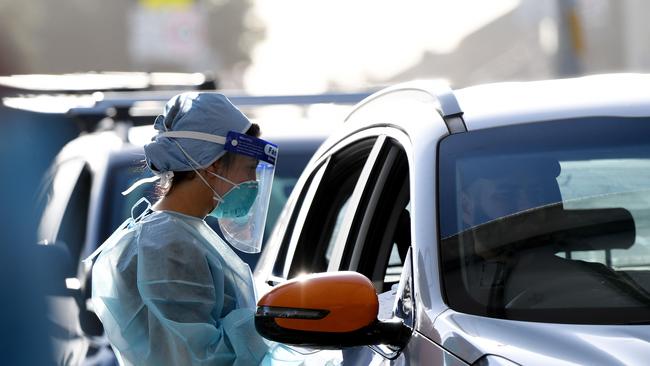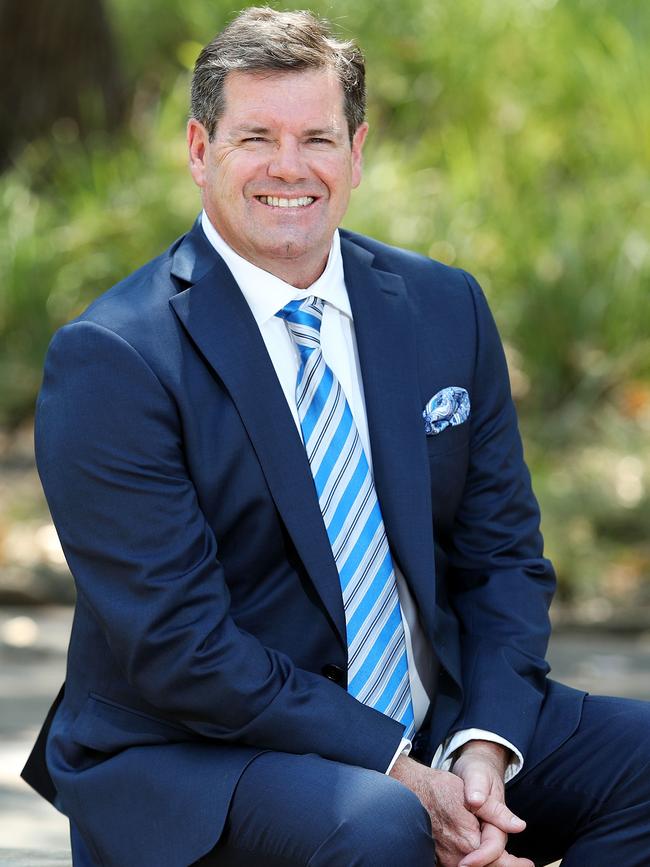Peter Gleeson: City slickers are to blame for causing covid pain in regional Australia
Crippled tourism, outrageous pub fines and long waits for test results — make no mistake, it is the bush and regions that copped the pandemic raw prawn, writes Peter Gleeson.

Opinion
Don't miss out on the headlines from Opinion. Followed categories will be added to My News.
COVID-19 has divided Australia and it’s the bush that has come off second best.
Decision-makers in capital cities with no practical knowledge of the way the country works are penalising the regions.
There’s rules for city folk and a different set of guidelines for those in the bush. Regional Australia and the bush is copping it in the neck for the bumbling incompetence and downright selfishness of those living in capital cities.
Why does it take less than 24 hours to get the result of a COVID-19 test in Melbourne but 10 days in Colac?
Why are pubs, clubs and restaurants in Roma and Longreach being fined $6600 for not complying with COVID regulations, yet they haven’t seen a case within 600km?
Why do people in Albury-Wodonga have to frustratingly wait 14 days to see GPs and specialists because they are required to comply with state-based coronavirus protocols that show no discretion or flexibility to border communities?

Is it any wonder people in the regions and bush are sick and tired of this crazy rollercoaster ride called COVID-19.
Just as they started to see light at the end of the tunnel and an opportunity to get their businesses up and running again, the second wave in Melbourne has thrown everything into disarray.
Now, NSW and Queensland are on war footing.
And all the while they have to put up with morons leaving Melbourne to go on day trips, thumbing their noses at COVID restrictions because they see it as an attack on their sovereignty and human rights.
All as idiotic Logan teens jeopardise an entire city by going on an alleged handbag stealing spree in Melbourne.
Make no mistake, when the post-COVID narrative is written, it will be well established that bush and the regions copped the raw prawn. Regional tourism in particular is on its knees because of border closures and lockdowns.
Confusion and uncertainty has been the outcome of city-centric decision-making by politicians who haven’t even had the courage to travel into the bush to get a gauge on how they are coping.
Drought, floods, bushfires, trade wars … throw in a soul-sapping virus pandemic to put the icing on the cake and there you have the lot of the Aussie bush.
The one bright light out of all this doom and gloom for the regions is that COVID-19 has changed the game forever on work and leisure for city slickers.
In many industries, there is no necessity to work in the heart of a major city. Working from home will now become the new norm for a significant percentage of employees.
That becomes even more attractive for those that can escape the city rat race and head to the regions.
Less stress, cheaper housing, cleaner air and a safer, more community feel. A five-minute drive to work – and that’s with a red light – is a pretty compelling argument.
In fact, a new body has been set up to specifically deliver on a projected population shift from the cities to the bush.
The Regional Australia Institute comprises some of Australia’s biggest corporate hitters, including major banks and employer groups, including Australia Post, the Commonwealth Bank, NAB, Aurizon and KPMG.

In the latest June job figures, new postings to regional Australia hit 11,000, up 22 per cent from May.
As part of the push into the regions, the Regional Australia Council 2031 has been established to “support the development, investment and prosperity of our regions in a collaborative way, to enhance the lives of Australians who choose to live in the regions’’.
The RAC2031 will focus on jobs, population, liveability and people and leadership. It’s a fantastic opportunity for Australia’s regions to prosper as part of the post-COVID-19 renaissance.
The challenge will be getting city-based politicians to stand up and take notice. If their efforts during the pandemic are any guide, they have much to learn.
